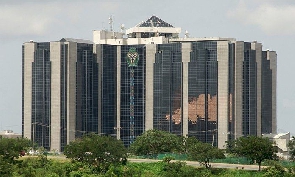Nigeria’s annual inflation rate fell to a six-month low in August, offering the Central Bank of Nigeria a window to halt an unprecedented tightening cycle when they meet next week, according to Bloomberg. ...Tap To Read The Full Story Here | ..Tap To Read The Full Story Here...
1.2.2. SEE. VIDEO: MAN. KILLED. MOTHER. FOR .RITUALS
Consumer prices rose 32.2 per cent from 33.4 per cent in July, the National Bureau of Statistics said in a statement published on its website on Monday. That matched the median estimate of nine economists in a Bloomberg survey.
The receding impact on prices of currency devaluation and the temporary removal of fuel subsidies instituted a year ago contributed to the slowdown. The measures formed part of reforms introduced by President Bola Tinubu after he entered office in May 2023 to attract investors, float the currency, and ease budget pressures.
Higher corn yields and a six-month window to import the crop and wheat duty-free also contributed to the softening in price increases.
Data collection was concluded before mid-August, so the effect of a 45 per cent increase in gasoline prices in early September, which saw a bump in transport costs, was not captured.
The slowdown raises the prospect that policymakers will pause a tightening cycle that’s lifted the benchmark rate to 26.75 per cent from 11.5 per cent in just over two years. It will also give the monetary policy committee, which will announce its decision on Sept. 24, time to assess the impact of recent currency volatility, devastating floods in northeastern Nigeria and the increase in gasoline prices on inflation.
1.2.2. SEE. VIDEO: MAN. KILLED. MOTHER. FOR .RITUALS
Food inflation slowed to 37.5 per cent in August from 39.5 per cent a month earlier. Core price growth, which excludes agricultural produce and energy, quickened to 27.6 per cent from 27.5 per cent.▶For More READ THE FULL STORY▶▶



